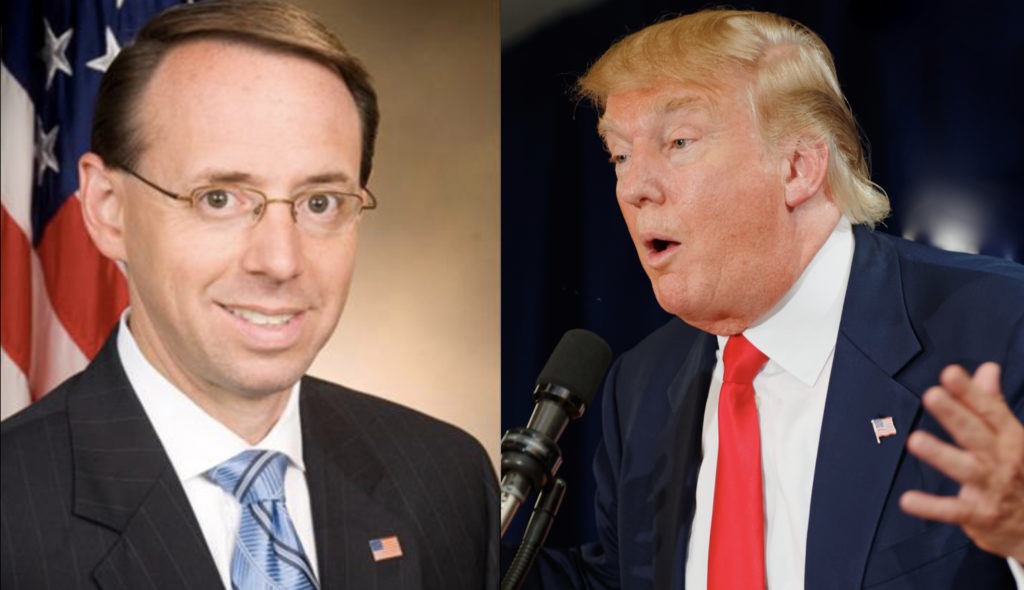The real reason Rod Rosenstein is refusing to recuse himself in the Trump-Russia investigation

Last night the news broke that Deputy Attorney General Rod Rosenstein has been interviewed as a witness in Special Counsel Robert Mueller’s obstruction investigation into Donald Trump. That led to immediate questions about why Rosenstein is still refusing to recuse himself from the investigation. Under almost any other circumstances, he certainly would step aside. But these aren’t normal circumstances.
Rosenstein only came to oversee the Trump-Russia investigation after his boss, Attorney General Jeff Sessions, got caught lying about his own role in the scandal and had to recuse himself. Trump then went on to fire FBI Director James Comey in an attempt at sabotaging the investigation. Rosenstein was a witness to that firing, creating a potential conflict. But there are two reasons why Rosenstein isn’t recusing himself. One is technical, and the other is pragmatic.
The minute Rod Rosenstein appointed Robert Mueller as Special Counsel, authority over the investigation was transferred from Rosenstein to Mueller. At this point Rosenstein only has the power to fire or not fire Mueller and nothing more. The only valid reason to fire Mueller would be some sort of criminal conduct on his part, such as conducting the investigation in an illegal manner, or going out and robbing banks in his spare time. Because none of that’s happening, there’s no question about whether Mueller needs to be fired. Therefore, there’s no actual conflict of interest when it comes to Rosenstein having firing authority over Mueller. But there’s a much more important reason why Mueller wouldn’t want Rosenstein to recuse himself.
If Rod Rosenstein were to recuse himself from the Trump-Russia investigation, someone named Rachel Brand would inherit the authority to fire or not fire Robert Mueller. Little is known about what she would do in that situation, but she was hand picked by Trump, so there’s reason to fear the worst. So no matter how convoluted this might become, as long as Rosenstein refuses to recuse himself, Mueller remains on the job – and that’s the part that matters.
